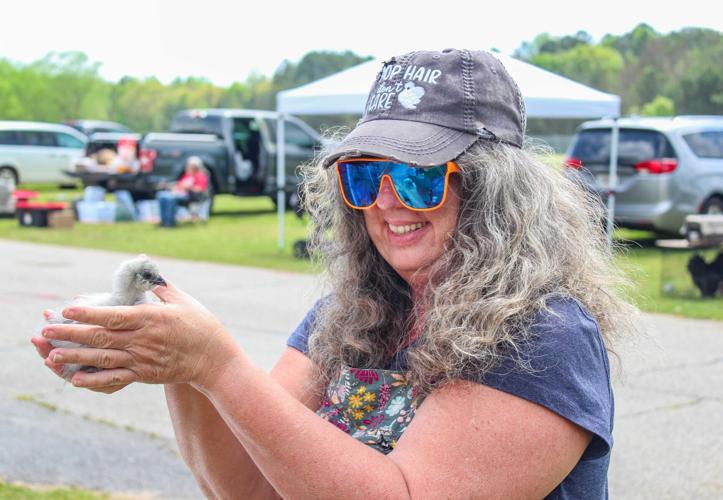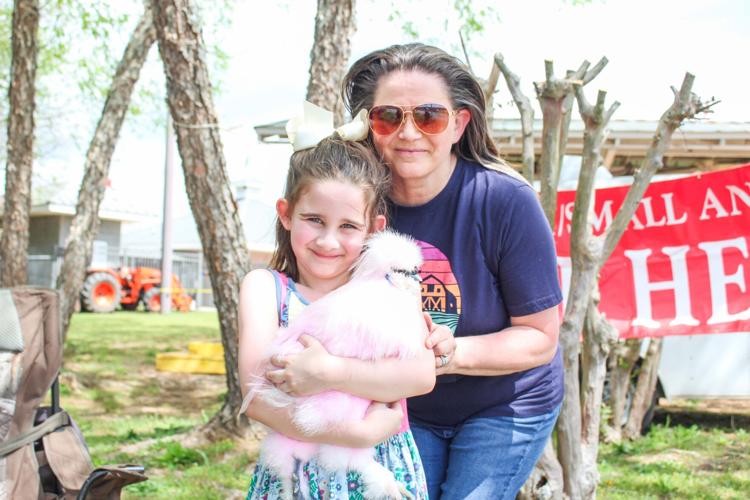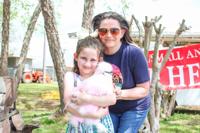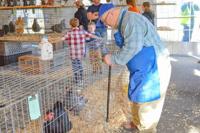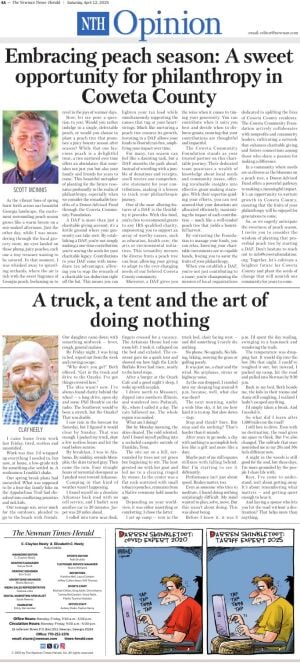The birds are back.
After its postponement in February due to avian influenza, the annual Chattahoochee Valley Poultry Association Show returned to the Coweta County Fairgrounds at 275 Pine Road in Newnan.
Widely regarded as one of the largest poultry shows in the Southeast, the event features a two-day swap meet and a one-day competitive show. The swap meet runs Friday, April 4 from 9 a.m. to 6 p.m. and Saturday from 6 a.m. to 6 p.m. Admission is free to the public.
The spread of avian influenza continues to threaten Georgia’s $40 billion poultry industry, according to poultry expert Bryan Massengale, who addressed members of the White Oak Golden Kiwanis Club on Thursday.
Massengale, president of the Chattahoochee Valley Poultry Association and a longtime organizer of Coweta County’s annual poultry show, provided an in-depth overview of the disease’s rapid transmission, regulatory impact and the growing challenges it poses to both commercial and hobby breeders.
“Once you realize you have a problem (with avian influenza), they’re dead,” Massengale said, describing the devastating speed of the virus. Infected flocks can be wiped out within 24 hours, leaving little time for mitigation or containment.
The Georgia Department of Agriculture and the U.S. Department of Agriculture’s Animal and Plant Health Inspection Service confirmed a positive case of highly pathogenic avian influenza in January in a small backyard flock in Clayton County. The case, involving 13 chickens and ducks, marked the state’s fourth detection since the nationwide outbreak began in February 2022.
Massengale emphasized that Georgia’s poultry sector is not only the state’s No. 1 agricultural commodity — it’s an economic powerhouse. He cited production figures that include 1 million pounds of chicken, 7.6 million table eggs and 5.8 million hatching eggs annually.
“This is why we take it so seriously,” he said. “We’re protecting livelihoods, but also decades of breeding and food supply chains.”
Georgia has implemented strict regulations to safeguard its poultry population, including a mandatory 21-day negative test requirement for all birds entering the state. The state also adheres to the National Poultry Improvement Plan to monitor and reduce the risk of outbreaks.
Massengale noted that commercial farms rely on strict biosecurity protocols such as foot baths, controlled access to barns and monitoring around feed bins, where contamination has previously been suspected.
Free-range flocks are particularly vulnerable, and owners are advised to limit outdoor access during known outbreaks.
A complex national picture
One of the biggest challenges in managing avian influenza, according to Massengale, is the lack of standardized protocols across state lines.
“Every state handles it differently,” he said. “That makes it hard to move poultry safely and legally.”
For example, Alabama has been described as less rigorous in enforcement, while Florida requires online permits for poultry transport. These inconsistencies make interstate shows and hobby breeding more complicated and risky.
Massengale’s own association, which organizes one of the largest poultry shows in the Southeast, has felt the financial sting of the virus firsthand. The event typically brings in more than 1,800 birds from across the United States and Canada, nearly double the size of the average regional show.
The annual event also includes a swap meet, which adds volume and logistical complexity.
In 2022, just two days before the show was scheduled to open, state officials abruptly canceled it due to new avian flu cases reported in Indiana and other Midwest states. The shutdown left the organization with unrecoverable expenses for tents, trophies and facilities.
“We had everything set up,” Massengale recalled. “By the time we were told to shut it down, we’d already spent most of the money.”
For hobby breeders, the loss goes beyond economics. Many have spent decades developing specific bloodlines of poultry.
“When you lose birds, you’re not just losing animals. You’re losing 20 years of breeding work,” Massengale said. “It’s a passion — not just a business.”
Egg prices not solely driven by avian influenza
While avian influenza has had a notable effect on the poultry industry, Massengale clarified that it isn’t the sole reason for the recent rise in egg prices.
He pointed to a few affected layer flocks in Midwestern states like Indiana and Illinois as the initial trigger for price increases. However, he said the continued high prices appear to be more reflective of market adjustment than a direct consequence of the disease.
“Egg prices, once raised, tend to stay high until the market forces them back down,” he said. “Avian flu had an impact, but it’s not the full story.”
Massengale emphasized that broader economic forces — such as supply chain shifts, transportation costs and consumer demand — are likely contributing to the sustained prices.
Looking ahead
With warmer temperatures slowing the virus’s spread, experts say avian influenza may no longer be a seasonal concern but a “new normal” for the industry.
State agencies have begun shifting away from full shutdowns and toward more targeted responses that aim to contain outbreaks while minimizing economic damage.
Still, Massengale urged vigilance and preparation from anyone involved with poultry — whether on a commercial scale or as a backyard breeder.
“The virus doesn’t care if you’re raising chickens for profit or for passion,” he said. “It’s still deadly.”
More information, including the 2025 show catalog, is available at www.cvpa-newnan.org or through the Chattahoochee Valley Poultry Association Facebook group.

